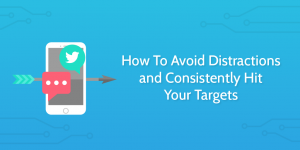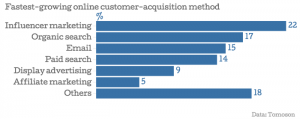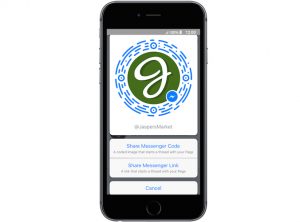B2B marketing teams deserve better than patchworked spreadsheets and siloed dashboards to track and measure success.

If someone asked how you track your marketing efforts, how would you respond?
Chances are, your answer would sound like a game of martech MadLibs.
You’re using Google Analytics, advertising platforms, marketing automation, your CRM and myriad other tools to track, measure and take action on your marketing data. You spend your days building marketing programs, compiling reports, and setting up workflows and dashboards to automate the process as much as possible. And of course, not a day goes by without someone in your organization asking you to “just pull a quick report” for them.
You’ve got your hands full.
More marketing tools, more problems
The average enterprise company uses 91 marketing cloud services.
Let that sink in.
If you’re one of the marketers reading this and wishing you had the budget for 91 tools, you can probably still relate to the feeling of information overload. Managing even five to ten tools, each with a unique set of data and reporting capabilities, is no walk in the park.
You know better than anyone that siloed marketing, sales and customer data is inefficient, difficult to manage — and seemingly unavoidable. There’s no easy way to see all your data in one place. And “pulling a quick report” is anything but quick.
So, where’s the disconnect?
While every marketing tool tracks its own set of metrics, most of them have one thing in common: leads.
And that’s a problem.
Or rather, it’s a problem that leads are all they have in common. It’s not as if leads don’t matter — of course they do! — but they don’t tell the full story. As buying committees grow increasingly larger, it’s truer than ever that you don’t sell to an individual; you sell to an account. Relying on leads can cause issues when you want to get a holistic view of individual accounts, marketing programs and overall pipeline health. In other words, when you want to do data-driven B2B marketing.
Marketers deserve better — and the answer is account-based analytics.
Top 3 signs it’s time to adopt an account-based analytics tool
An account-based analytics tool will allow you to tie all your data together and easily report on accounts, channels, campaigns and revenue metrics. It uniquely gives you the ability to track and report on data at the account level.
This means giving your leadership team a birds-eye view of how different segments or tiers of accounts are progressing through the sales funnel. It also means you can get hyperspecific and run opportunity analyses, drilling into individual accounts to see every single marketing and sales touch that influenced them on their path to purchase. The stuff of a revenue geek’s dreams.
If you can identify with any of the following challenges, it’s time to consider account-based analytics.
Sign #1: At least a portion of your sales team works on a list of strategic accounts.
Whether you’ve got a full ABM program in place or you have a few reps selling to strategic accounts, you need a way to track success at the account level. When you’re selling to your highest-value accounts, you need to create a personalized buying experience — and you can’t do that if you and your sales team are struggling to thread all your critical account insights together.
Sign #2: You’re drowning in spreadsheets.
Speaking of threading data together — spreadsheets are a tried-and-true way to aggregate data and report on your marketing success. But they take a lot of time to create and update, and they lack sophistication and flexibility. If you’re drowning in spreadsheets, the time has come to make the shift to account-based reporting.
It’s important to select a solution that can combine all your most valuable data, from firmographic data to predictive insights to engagement data at the account and contact levels. If you still need to transfer your account data to spreadsheets in order to report on it, you’re missing a key component of account-based analytics.
Sign #3: Getting a 360-degree view of your accounts sounds like a pipe dream.
Marketing and sales teams have long dreamed of the day they could quickly see every engagement across every channel with all the decision-makers at each account. CRM and marketing platforms can get you close, but they still leave a pretty big blind spot.
Quick question: How many leads do you get from C-level executives? Probably not too many, considering they’re more likely to browse your website without filling out a form or otherwise identifying themselves. The same goes for other key stakeholders. But just because they’re not requesting a meeting or downloading an e-book doesn’t mean their engagement is less important. It’s just more difficult to track, so you’ve been forced to largely ignore their impact on deals.
With account-based analytics, you can tie anonymous web engagement data to the accounts they belong to. You can see, for example, that not only did three contacts from an account attend your webinar, but five more browsed your product pages anonymously. That data will help you prioritize and personalize your outreach and it will help you understand the impact your website has on the sales process.
Measuring your success
Your patchworked spreadsheets and dashboards have gotten you this far, but B2B marketers deserve a better way to measure success. For organizations selling to multiple buyers over a prolonged sales cycle, account-based analytics is the easiest and most effective solution.
Gone are the days where leads ruled the roost. It’s time for marketing ops to own a holistic tracking and reporting process that centers accounts and enables their entire revenue team to succeed.
Marketing Land – Internet Marketing News, Strategies & Tips
(69)





